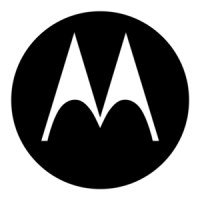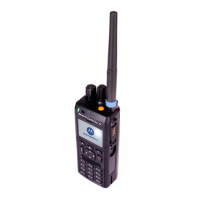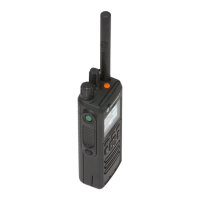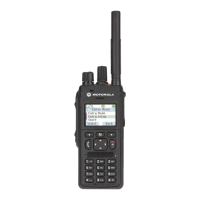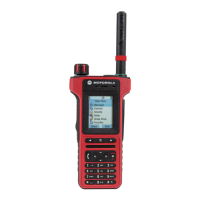Snohomish County PUD Radio Operations Manual • Rev. 6/03
62
Section IV
Viewing Your Radio’s ID Number
The radio ID number is labeled on the front of the radio unit and always starts
with the numerals: ‘70’. If for some reason, you need to view the radio ID number
that is programmed into the radio unit, follow these steps:
Yo u D o T h e Radio Does
1. To view your radio’s ID number,
press the left arrow key [<] until
“CALL” appears on
the display.
2. Press the key below “CALL” The display changes to show the last
or “PAGE”. ID number transmitted or received.
3. Press the left arrow key [<] to view The display changes to “MY ID:” fol-
“MY ID:” lowed by your radio’s ID number.
4. Press the HOME key to return the The radio will return to the home dis-
radio to the home display. play.
FCC Safety Standards
The Federal Communications Commission [FCC], with its action in General
Docket 79-144, March 13, 1985, has adopted a safety standard for human expo-
sure to radio frequency electromagnetic energy emitted by FCC regulated equip-
ment. Proper operation of your radio will result in user exposure substantially
below FCC recommended limits.
• Do not hold the radio with the antenna very close to, or touching, exposed
parts of the body, especially the face, ears, or eyes, while transmitting. Hold
the radio in a vertical position with the microphone two to three inches
away from the lips.
•Do not hold the transmit switch [PTT Switch] on when not actually desiring
to transmit.
•
Do not allow children to play with any radio equipment containing a transmitter.
•Do not operate radio transmitters near explosive blasting caps. The trans-
mitted radio energy may trigger a blasting cap and cause an explosion.
[Disable transmission or turn the radio off in blast zones.]
• Do not operate radio transmitters in an explosive atmosphere unless it is a
type especially qualified for such use. An explosion may result. [PUD
radios are NOT qualified for use near explosives.]
The display shows 3 choices; for
example, “CALL,” “PAGE” and
“PHON.”
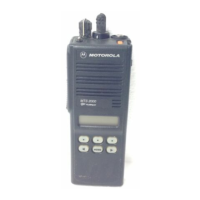
